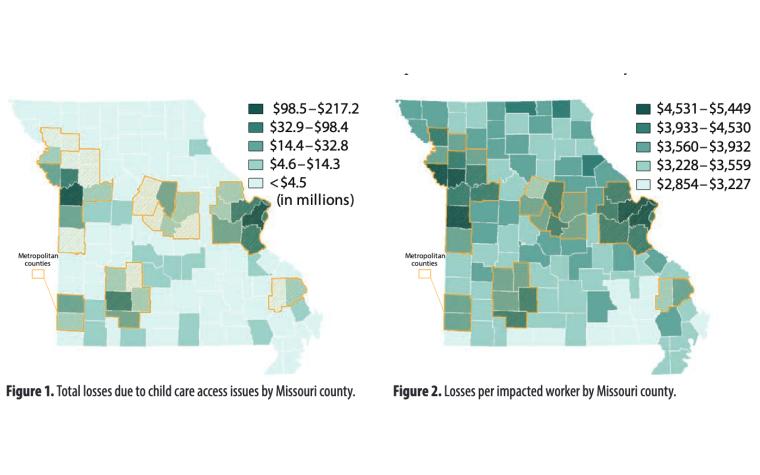COLUMBIA, Mo. – A new report from University of Missouri Extension reveals a staggering economic toll of Missouri’s child care crisis: an estimated $1.15 billion lost each year due to access challenges.
Conducted in partnership with the MU Center for Family Policy and Research, the analysis breaks down the economic hit as $951 million in employer costs from worker absenteeism and turnover, and $194 million in lost tax revenue that would otherwise support state and local economies.
“The Economic Impact of Child Care Shortages in Missouri” is available for free download.
“Child care is a workforce and economic development issue, and tangible data points help us better understand and communicate the impact faced by businesses and communities,” said MU Extension specialist Luke Dietterle. “This data can inform ongoing conversations about child care challenges in Missouri and possible solutions.”
The mismatch between child care need and availability was highlighted in a recent Missouri Economy Indicators brief (PDF) from MU Extension’s Exceed program. Findings suggest that for every 10 children under age 5, there are only 4.6 available child care slots. Affordability is another barrier in the child care crisis: According to the brief, the average annual cost of full-time child care is $8,100, nearly 14% of a typical Missouri family’s income.
Despite the challenges, there are signs of progress. Alan Spell, assistant extension professor and director of MU Extension’s Exceed program, notes that Missouri’s child care workforce has rebounded from the pandemic disruption. In 2024, employment in the sector rose 4% from 2020 levels, and nearly half of Missouri counties reported increased child care capacity in 2025.
Backed by the MoExcels Workforce Initiative, MU Extension is piloting strategies to serve child care providers, including early childhood education professionals in Kansas City and Moberly. MoExcels, an initiative of the Missouri Department of Higher Education & Workforce Development, facilitates development and expansion of employer-driven education and training programs and initiatives.
“Our work is equipping businesses and communities with a better understanding of the early childhood landscape,” said Sarah Kennedy, an MU Extension field specialist in community development. “This report is an important implement in our toolbox and helps elevate the significance of child care challenges.”
Kennedy notes that the report is being released on “A Day Without Child Care,” a national movement bringing awareness to the importance of child care in making businesses run and communities thrive.
For more information about the MoExcels initiative, contact Sarah Kennedy at skennedy@missouri.edu or Luke Dietterle at luke.dietterle@missouri.edu.
About the MoExcels Workforce Initiative
Public colleges and universities were asked to submit proposals for funding in FY 2025 to facilitate development and expansion of employer-driven educational training programs, including entrepreneurship, to increase education attainment and career opportunities for populations historically underserved by higher education. Twenty-three proposals were submitted requesting a total of $59.4 million.

